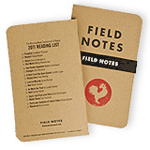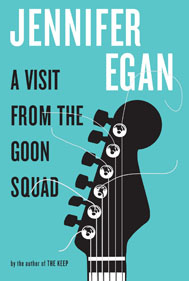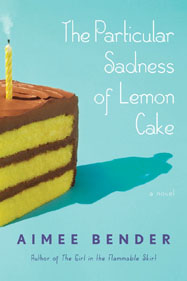-
March 31, 2011
Zombie Round
-
Commentary by
Kevin Guilfoile & John Warner
-
Today’s Winner:
2A Visit From the Goon Squad
Kevin: All this week I think a number of people have been anticipating a rematch in the championship, and now they have one—a duel infused with issues of hype and gender, a match between an old-fashioned realist novel and one existing in some sort of netherworld between the short story and novel.
John: It is the best of times; it is the worst of times for fans and followers of the Tournament of Books. I suspect that there’s plenty of people out there who would’ve liked to see a couple of upstarts get the best of the favorites (I think I might be one of them) but this matchup feels right. The “smaller” books in the tourney have gotten time and attention. Time for the titans to battle it out.
I know one person who isn’t happy about this matchup—Huffington Post blogger Anis Shivani, who has penned a multi-thousand-word screed on something the rest of the world already knows: that the New York Times Book Review tends to focus on literary fiction primarily published by the Big 6 and leans toward a certain parochial East Coast bias.
 Buy anything from Field Notes from now until the end of the ToB and receive a special “reading list” memo book free, while they last. Use coupon code ROOSTER.
Buy anything from Field Notes from now until the end of the ToB and receive a special “reading list” memo book free, while they last. Use coupon code ROOSTER.To listen to Shivani, even our humble tournament, with the inclusion of books like Freedom, A Visit from the Goon Squad, Room, and The Particular Sadness of Lemon Cake (which he called the “worst” novel of the year), is apparently perpetuating “the perverted groupthink of an empire’s intellectuals in the last stage of decadence.”
This sucks. I thought we were having a little fun talkin’ books and now I come to find out that we’re befouling the culture.
Kevin: That HuffPo article is an extension of one of the great genres of American criticism—the elitist masquerading as a populist by accusing something else of being “elite” by which he really means “not nearly elite enough.” Let’s call it post-faux-populism. It’s impossible to read any part of this essay alleging some sort of Eastern intellectual cabal in anything other than a William F. Buckley/Phillips Exeter headmaster accent. (Go ahead and try it with, say, “an occult hierarchy of values perceptible only to its elite cadre of editors.”) In fact, Shivani should start every one of his posts with the words “Ahoy, polloi!” It could be a thing.
But whatever. Shake the box up. So few people are writing about books at all that I’m not going to tell anyone who cares that much that they should shut up. Even if almost everything he says in the paragraph that begins, “What would be interesting is if the Times…” wouldn’t be interesting in the least, which is why they haven’t done it. Getting “independent scholars to assess the work of fellow social scientists” is hardly a recipe for selling newspapers. Criminy, the New York Times Book Review is practically the last newspaper book section left in America. But, you know, that’s the world as it is, as opposed to the world Anis Shivani would like it to be. Which is the whole point, I guess.
John: If we can make the world the way we want it to be, I would like C.C. Sabathia and Cliff Lee to be traded to the Chicago Cubs for three of the White Sox’s best players.
What Shivani proposes happens on a daily basis all over the country in the form of academic journals, which are rarely read, even by the scholars in the fields they cover. It would be interesting to see Jennifer Weiner and Anis Shivani get into a tug of war for which direction the New York Times Book Review is supposed to go.
Kevin: He at least gives some deserved props to Teddy Wayne’s under-hyped Kapitoil, which had the misfortune of meeting Freedom in the first round.
Now where were we? Oh, yeah. We’ve talked a lot about the size of the world Franzen creates in Freedom, but Judge Jones does an excellent job of pointing out that Egan paints a universe just as large—she only does it with fewer strokes and larger spaces between characters. It’s a lovely trick, and attempting it has tripped up many collections of connected stories in the past. Asking the reader to draw significant connections between distantly related characters in completely unrelated chapters can feel like a stretch. I don’t think it ever does in Goon Squad.
Judge Jones’s description of that first story reminds me of my own experience reading Egan’s book, where my expectations of the novel were constantly being challenged and recalibrated by each chapter in succession. I do think that is one of the great contrasts between our final books—that the pleasures of Goon Squad were mostly immediate, and the pleasures of Freedom were mostly cumulative. (Which isn’t to say that Freedom doesn’t have some wonderful sentences or that the stories in Goon Squad don’t add up to something greater than its parts.) We’ll have more to say about it in the recap/preview tomorrow, but for my money, and for reasons both internal and external, this is the most significant championship match in the history of the ToB.
John: I tend to agree with that, but I also feel like at times during the tourney, Goon Squad has gotten a little more credit than it deserves for its scope. It casts a wide net, but there’s also a fair number of holes—intentionally so. To be honest, to me, it never felt like a novel. The nods to previously introduced characters in subsequent stories at times felt like winks and nudges, rather than integral story elements. Probably most significantly for my reading experience, at the end of each story, I felt like I could put it down and not pick it up again. This is not to say that I didn’t enjoy the subsequent material when I did re-engage with the book, but that experience feels a lot more like I read a collection of linked stories, rather than a novel.
In fact, this may sound like heresy, but Goon Squad was the second best story cycle I read this year. My favorite was a much less-heralded book by Frederick Reiken called Day for Night, a book that I don’t think ever got on our tournament radar.
Kevin: I’m not sure Jennifer Egan would call it a novel, either. For me it also transcended a typical story collection. When I was done with it I had a feeling that every chapter had been essential.
We also have to acknowledge that The Particular Sadness of Lemon Cake was the big surprise of the 2011 Tournament of Books. It took down three novels that have passionate followers—something that I think explains some of the polarizing opinions that have been thrust its way over the last few weeks. Shrugging off the haters (and we can now include Anis Shivani) and winning again and again has earned Aimee Bender some badass credentials in my book. If there were a biker bar for book nerds, and in Los Angeles there might be, Aimee Bender should be considered exempt from the ritual hazing—which I only know about from Hunter S. Thompson books, but it sounds just awful.
John: I’ve been wincing at some of the punishment Lemon Cake has taken, even in victory, and want to say again that I personally enjoyed it. It’s easy to pick individual elements out of any book and find them wanting when held up for isolated examination, but what I remember is the feeling of getting absorbed in Rose’s experience, and I thought the relationship between Rose and Joseph’s friend George felt real and touching. In most of its individual matchups in the tourney, I would’ve chosen the alternative (including this one), but that’s only a testament to how positively I felt about so many of these books.
Kevin: I’d like to take everything you just said and pretend it was my own. Not that I haven’t done that before.
Tomorrow we have our tournament recap, plus the much-anticipated championship preview, anticipating Monday. Some very special guests will be dropping by with their predictions, and we’ll also be asking all of you to do some prognosticating of your own. I.e., a contest. Do well and you could end up with some sweet prizes from Field Notes and Powell’s.
John: Prizes! Also, in a surprise to everyone, including me, the Biblioracle will return for a brief, almost-end-of-tournament celebration. Look for details tomorrow on TMN.
Kevin Guilfoile is the author of two acclaimed novels, Cast of Shadows and The Thousand, which have been translated into more than 20 languages.
John Warner’s novel, The Funny Man, will be released late September of this year by Soho Press. For the time being, he teaches at Clemson University.

















